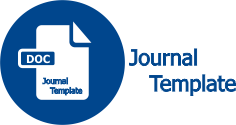Pengaruh Penggunaan Modul Pembelajaran Sistem Koloid Berbasis Model Differentiated Science Inquiry terhadap Hasil Belajar Kognitif Peserta Didik
(1) Universitas Negeri Makassar
(*) Corresponding Author
DOI: https://doi.org/10.26858/cer.v6i1.39489
Abstract
Keywords
Full Text:
PDFReferences
Agustin, D., Mislekah, E., Sugandi, A. S., & Pratiwi, Y. (2021). Efektifitas Kurikulum 2013 terhadap Peningkatan Mutu Pendidikan di SD Negeri 1 Purbawinangun. Standarisasi Pendidikan Sekolah Dasar Menuju Era Human Society 5.0, 1, 144–151.
Aksan, J. A. (2021). Effect of Modular Distance Learning Approach to Academic Performance in Mathematics of Students In Mindanao State University-Sulu Senior High School Amidst Covid-19 Pandemic. Open Access Indonesia Journal of Social Sciences, 4(2), 407–430. https://doi.org/10.37275/oaijss.v4i2.64
Betlen, E. A. (2021). Effect Of Modular Learning Approach on The Academic Achievement of StudentsS. Global Scientific Journal, 9(7), 2995–3004.
Dewi, P. Y. A., & Primayana, K. H. (2019). Effect of Learning Module with Setting Contextual Teaching and Learning to Increase the Understanding of Concepts. International Journal of Education and Learning, 1(1), 19–26. https://doi.org/10.31763/ijele.v1i1.26
Djalil, Moh. R. (2021). Identifikasi Kesulitan Belajar Siswa Dalam Memahami Konsep Kimia Koloid Di Kelas Xi SMA Negeri 4 Gorontalo [Skripsi, Universitas Negeri Gorontalo]. https://repository.ung.ac.id/skripsi/show/441414057/identifikasi-kesulitan-belajar-siswa-dalam-memahami-konsep-kimia-koloid-di-kelas-xi-sma-negeri-4-gorontalo.html
Fuad, N. M. (2017). Pengaruh model pembelajaran differentiated science inquiry dipadu mind map terhadap hasil belajar kognitif ipa-biologi, ketrampilan berpikir kritis dan kreatid ditinjau dari gender pada siswa SMP Negeri Di Kabupaten Kediri. The Learning University. http://repository.um.ac.id/id/eprint/64661
Greene, J., & Thomas, K. (2020). Understanding Psychology. In I. Roth (Ed.), Introduction to Psychology (1st ed., pp. 826–850). Psychology Press. https://doi.org/10.4324/9781315785127-17
Hobri. (2010). Metodologi Penelitian Pengembangan. Pena Salsabilah.
Lembaga Penelitian dan Pengabdian Masyarakat. (2021). Overview of the Understanding of Learning Modules and Main Functions. LP2M Universitas Medan Area, 12–13.
Llewellyn, D. (2011). Differentiated science inquiry. Corwin Press.
Luviani, S. D., Mulyani, S., & Widhiyanti, T. (2020). A Review of Three Levels of Chemical Representation until 2020. Journal of Physics: Conference Series, 1806.
Mulyani, S., Haniza, N., Ramadhani, D. G., & Mahardiani, L. (2021). Rash Model Approach for Analysis of Misconception on Chemistry Learning with Distractor Analysis. JKPK (Jurnal Kimia Dan Pendidikan Kimia), 6(1), 98. https://doi.org/10.20961/jkpk.v6i1.50517
Nugraeni, M. H. & Paidi. (2021). Instructional designs to promote scientific literacy on students and teachers: A review study. Journal of Physics: Conference Series, 1788(1), 012042. https://doi.org/10.1088/1742-6596/1788/1/012042
Pop, C.-F. (2022). Learning Science-Based Differentiated Inquiry. 9702–9709. https://doi.org/10.21125/inted.2022.2546
Salempa, P., Danial, M., Wijaya, M., & Auliah, A. (2021). Pengaruh Model Pembelajaran Differentiated Science Inquiry terhadap Hasil Belajar Kimia Peserta Didik. SEMINAR NASIONAL HASIL PENELITIAN 2021, Makassar.
Septikasari, R., & Frasandy, R. N. (2018). Keterampilan 4C Abad 21 Dalam Pembelajaran Pendidikan Dasar. Ejournal UIN Imam Bonjol Padang, 3(2), 112–122. https://doi.org/10.15548/alawlad.v8i2.1597
Ülger, B. B., & Çepni, S. (2020). Evaluating The Effect of Differentiated Inquiry-Based Science Lesson Modules on Gifted Students’ Scientific Process Skills. Pegem Eğitim ve Öğretim Dergisi, 10(4), 1289–1324. https://doi.org/10.14527/pegegog.2020.039
Utami, S. P., Ramlawati, & Wijaya, M. (2021). Pengembangan Perangkat Pembelajaran Kesetimbangan Kimia berbasis Model Pembelajaran Differentiated Science Inquiry untuk Meningkatkan Keterampilan Berpikir Kritis dan hasil Belajar Peserta Didik [Tesis]. Program Pascasarjana UNM.
Van Geel, M., Keuning, T., Frèrejean, J., Dolmans, D., van Merriënboer, J., & Visscher, A. J. (2019). Capturing The Complexity of Differentiated Instruction. School Effectiveness and School Improvement, 30(1), 51–67. https://doi.org/10.1080/09243453.2018.1539013
Vinko, L., Delaney, S., & Devetak, I. (2020). Teachers’ Opinions about the Effect of Chemistry Demonstrations on Students’ Interest and Chemistry Knowledge. Center for Educational Policy Studies Journal, 10(2), 9–25. https://doi.org/10.26529/cepsj.893
Article Metrics
Abstract view : 116 times | PDF view : 31 timesRefbacks
- There are currently no refbacks.
Jurnal dipublikasikan oleh: Program Studi Pendidikan Kimia
Program Pascasarjana Universitas Negeri Makassar
Alamat JL. Bonto Langkasa Gunung Sari Makassar, 90222
Kampus PPs UNM Makassar Gedung AD ruang 406 Lt 4, Indonesia.Phone 082393643737/085145825311/085242228678
CER UNM Indexed by:

Chemistry Education Review (CER) is licensed under a Creative Commons Attribution-NonCommercial 4.0 International License.










